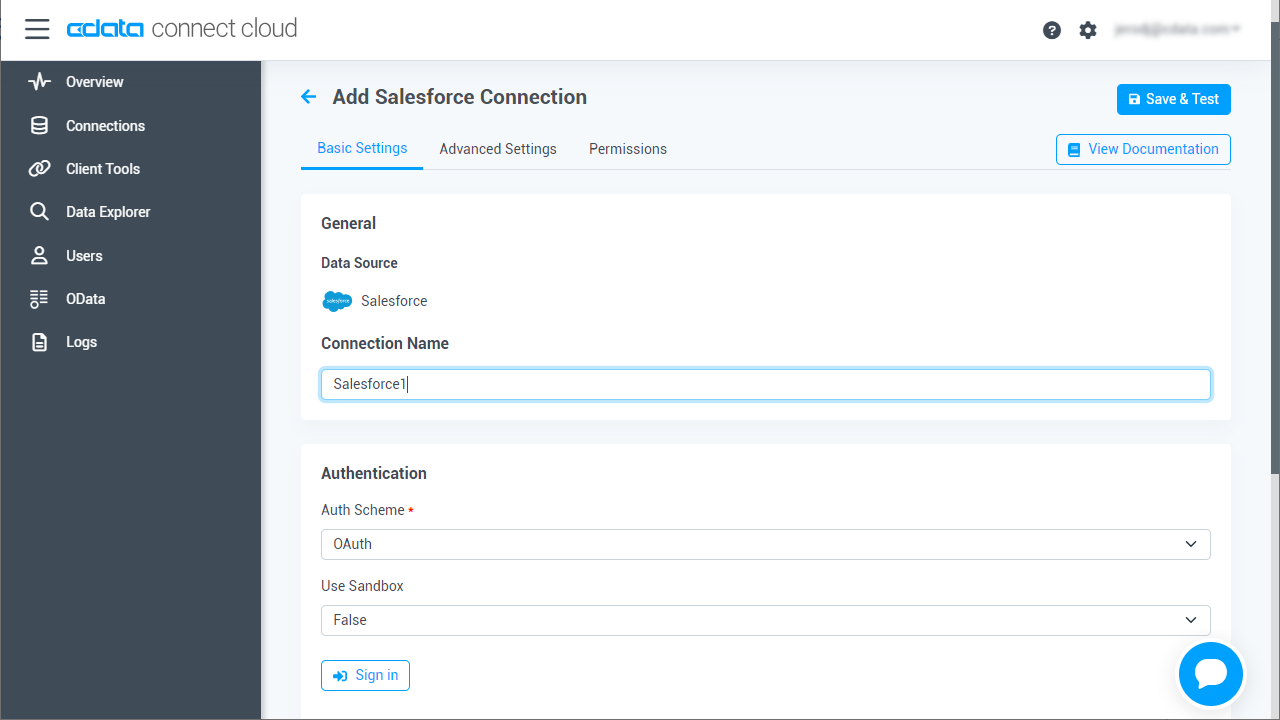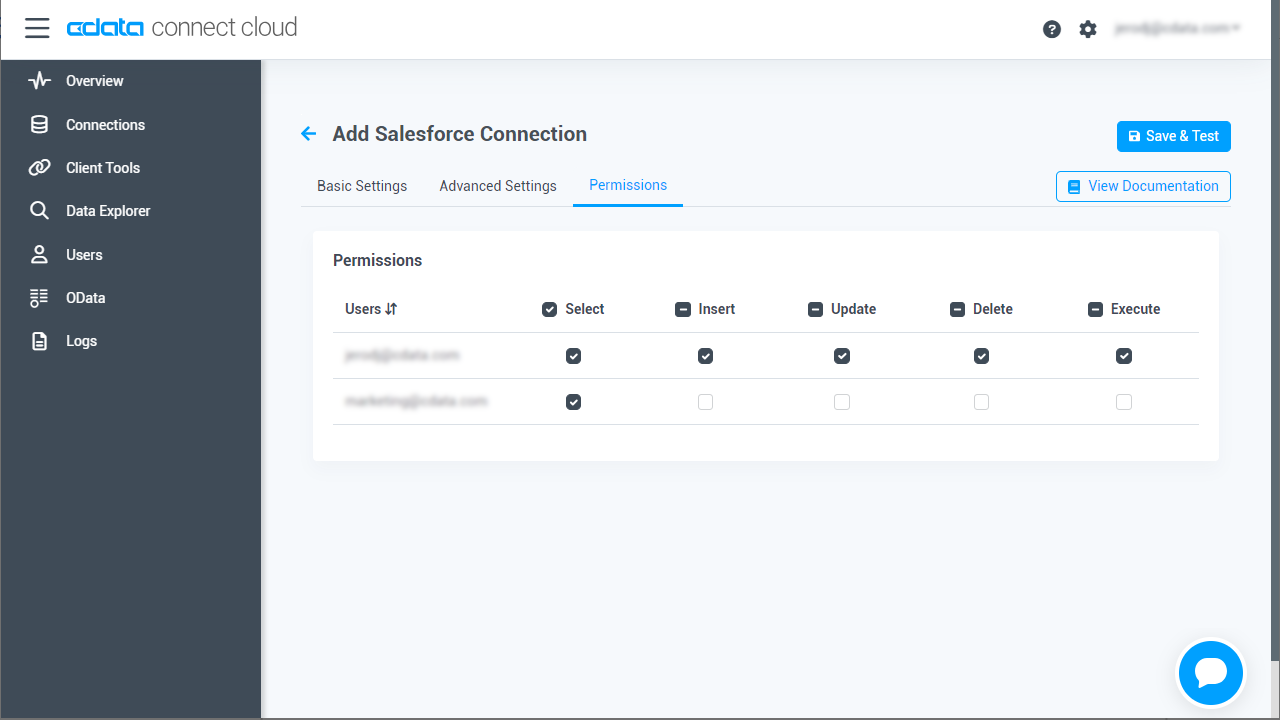Discover how a bimodal integration strategy can address the major data management challenges facing your organization today.
Get the Report →Build Active Directory-Connected Dashboards Using Zoho Analytics
Use CData Connect Cloud to connect to Active Directory Data from Zoho Analytics and import live Active Directory data.
Zoho Analytics is a modern BI and Analytics platform that allows you to connect and analyze your data, while also creating visualizations and dashboards to discover hidden insights. When paired with CData Connect Cloud, Zoho Analytics provides instant, cloud-to-cloud access to Active Directory data for reporting and analytics. This article demonstrates how to connect to Active Directory using Connect Cloud and analyze Active Directory data by creating dashboards in Zoho Analytics.
CData Connect Cloud provides a pure cloud-to-cloud interface for Active Directory, allowing you to analyze Active Directory data in Zoho Analytics — without replicating the data to a natively supported database. Using optimized data processing out of the box, CData Connect Cloud pushes all supported SQL operations (filters, JOINs, etc.) directly to Active Directory, leveraging server-side processing to return the requested Active Directory data quickly.
Configure Active Directory Connectivity for Zoho Analytics
Connectivity to Active Directory from Zoho Analytics is made possible through CData Connect Cloud. To work with Active Directory data from Zoho Analytics, we start by creating and configuring a Active Directory connection.
- Log into Connect Cloud, click Connections and click Add Connection
- Select "Active Directory" from the Add Connection panel
-
Enter the necessary authentication properties to connect to Active Directory.
To establish a connection, set the following properties:
- Valid User and Password credentials (e.g., Domain\BobF or cn=Bob F,ou=Employees,dc=Domain).
- Server information, including the IP or host name of the Server, as well as the Port.
BaseDN: This will limit the scope of LDAP searches to the height of the distinguished name provided.
Note: Specifying a narrow BaseDN may greatly increase performance; for example, cn=users,dc=domain will only return results contained within cn=users and its children.
![Configuring a connection (Salesforce is shown)]()
- Click Create & Test
-
Navigate to the Permissions tab in the Add Active Directory Connection page and update the User-based permissions.
![Updating permissions]()
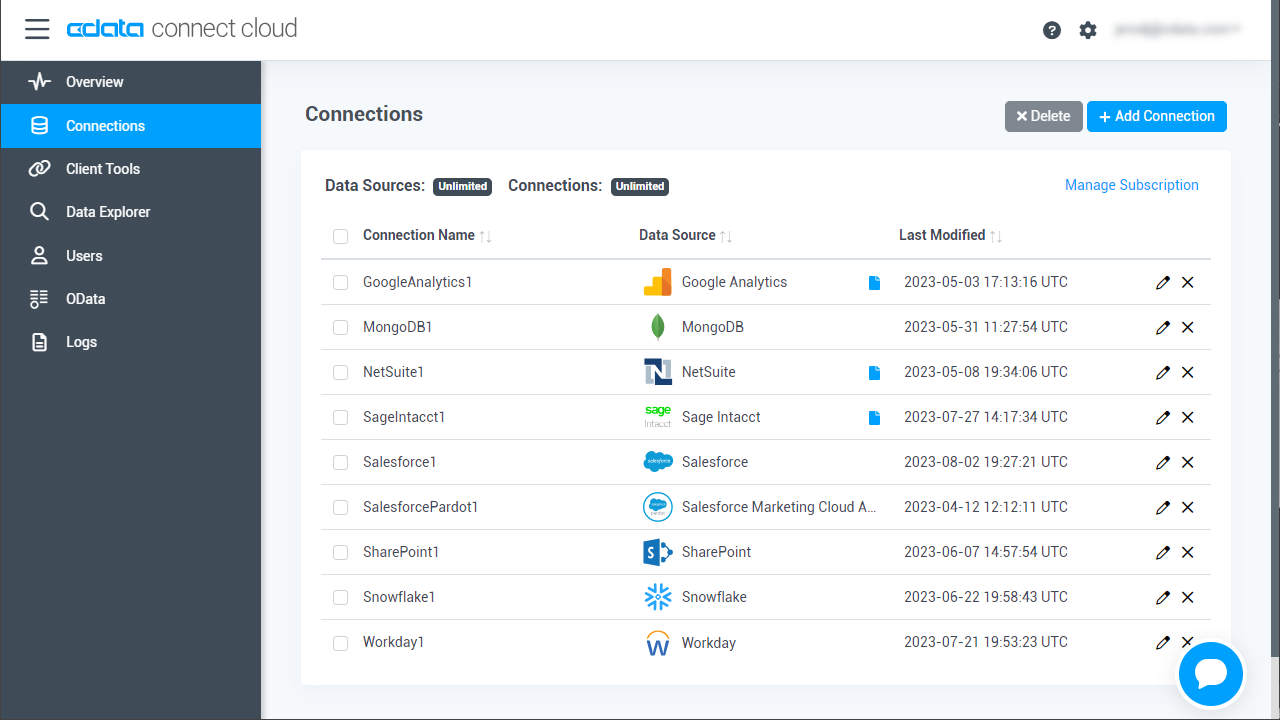
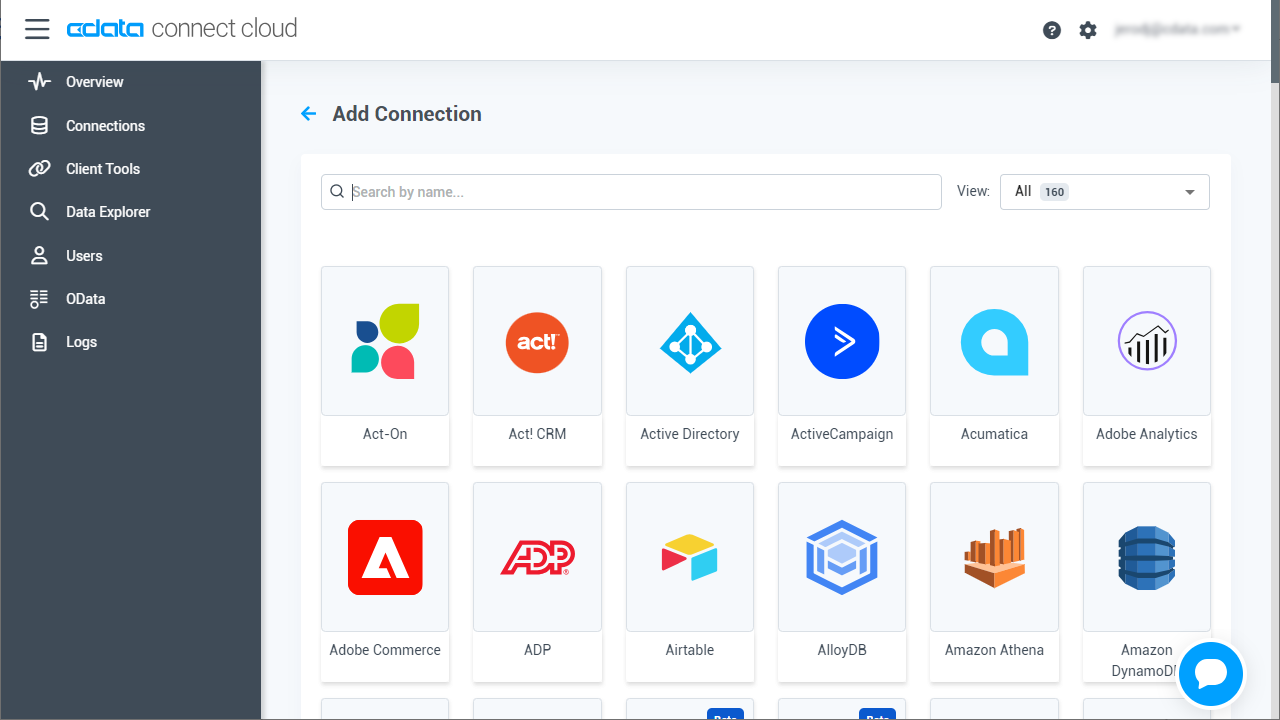
Add a Personal Access Token
If you are connecting from a service, application, platform, or framework that does not support OAuth authentication, you can create a Personal Access Token (PAT) to use for authentication. Best practices would dictate that you create a separate PAT for each service, to maintain granularity of access.
- Click on your username at the top right of the Connect Cloud app and click User Profile.
- On the User Profile page, scroll down to the Personal Access Tokens section and click Create PAT.
- Give your PAT a name and click Create.
- The personal access token is only visible at creation, so be sure to copy it and store it securely for future use. With the connection configured, you are ready to connect to Active Directory data, import data, and create dashboards from Zoho Analytics using CData Connect Cloud.
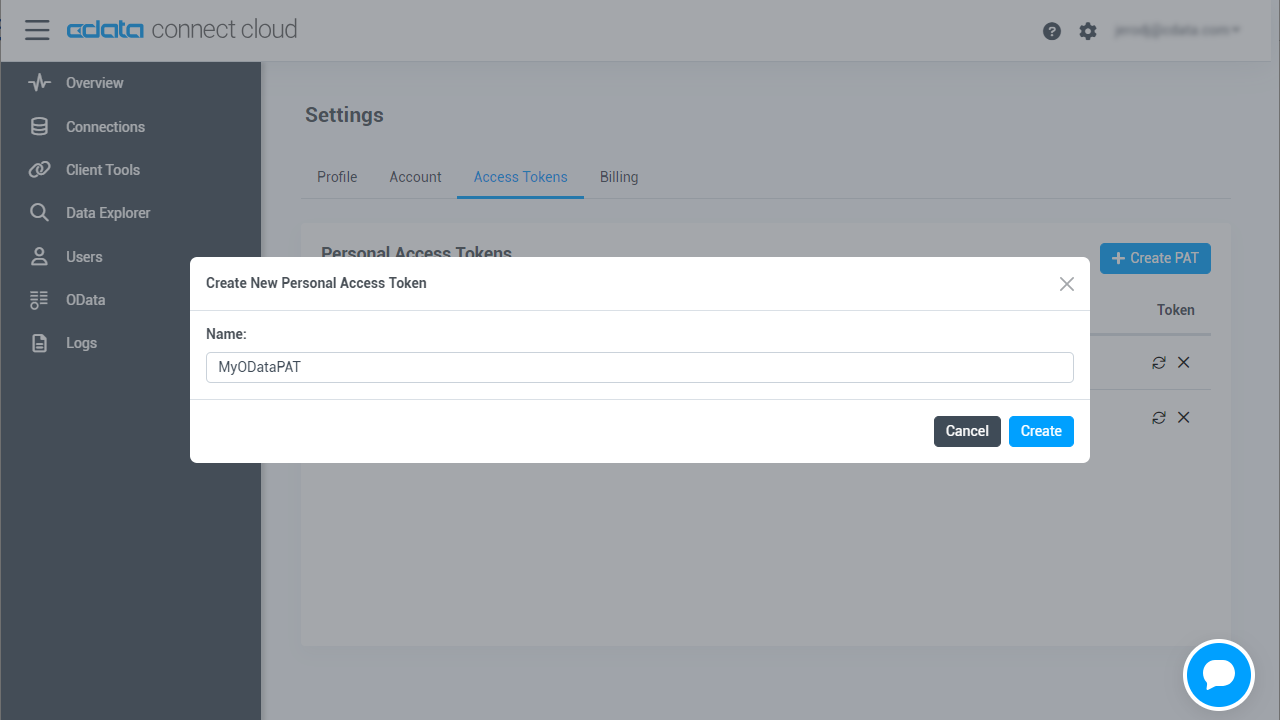
Connect to Active Directory in Zoho Analytics Using CData Connect Cloud
To establish a connection from Zoho Analytics to CData Connect Cloud, follow these steps.
- Log in to Zoho Analytics.
- Create a new connection and select Cloud Databases to open the connection modal.
-
Enter the following information:
- Database Type - select MS SQL Server.
- Endpoint - enter tds.cdata.com
- SQL Server Instance Name - leave this blank.
- Port - enter 14333
- Username - enter your CData Connect Cloud username. This is displayed in the top-right corner of the CData Connect Cloud interface. For example, user@domain.com.
- Password - enter the PAT you generated on the Settings page.
- Database Name - enter the Connection Name of the CData Connect Cloud data source you want to connect to (for example, ActiveDirectory1).
- Click Next.
![Displaying configuration settings]()
- Choose the table that you would like to import from, e.g. User.
- A Data Preview of the table should pop up. Next, enter a Workspace Name and Table Name to be able to refer to in Zoho Analytics. Click Next.
- There is an option to schedule the import periodically. After configuring, click Create.
- Now, the import has been initiated. Click OK.
- View your new connection in the Zoho Analytics Explorer.
- Click on the new connection to see the table.
- Zoho Analytics can auto-generate dashboards for the user, as seen here:
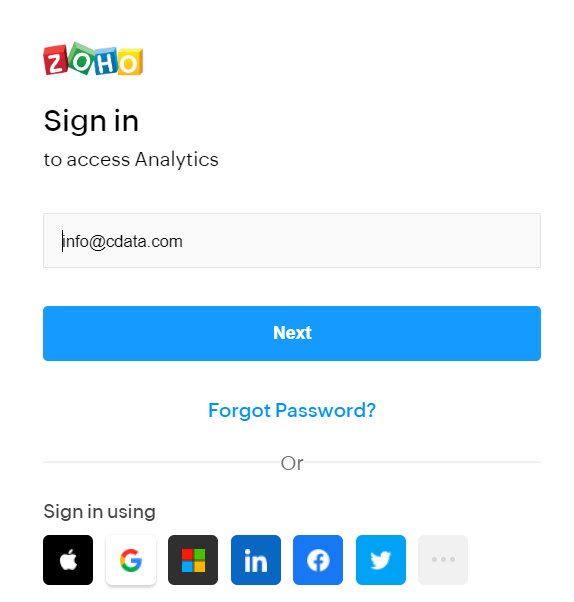
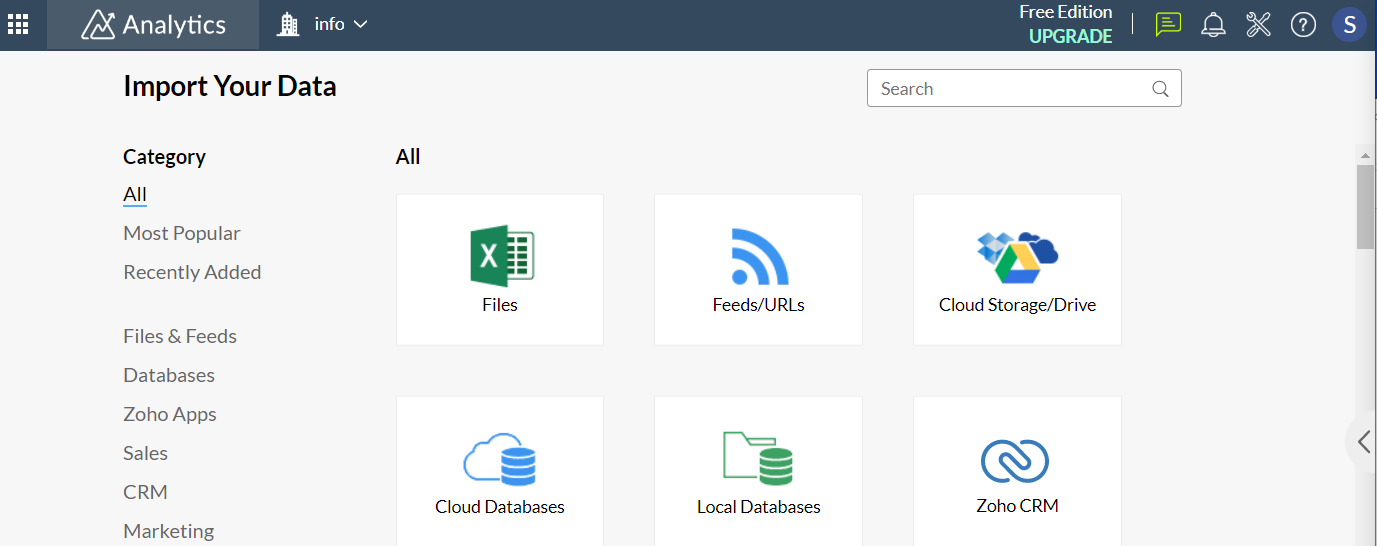

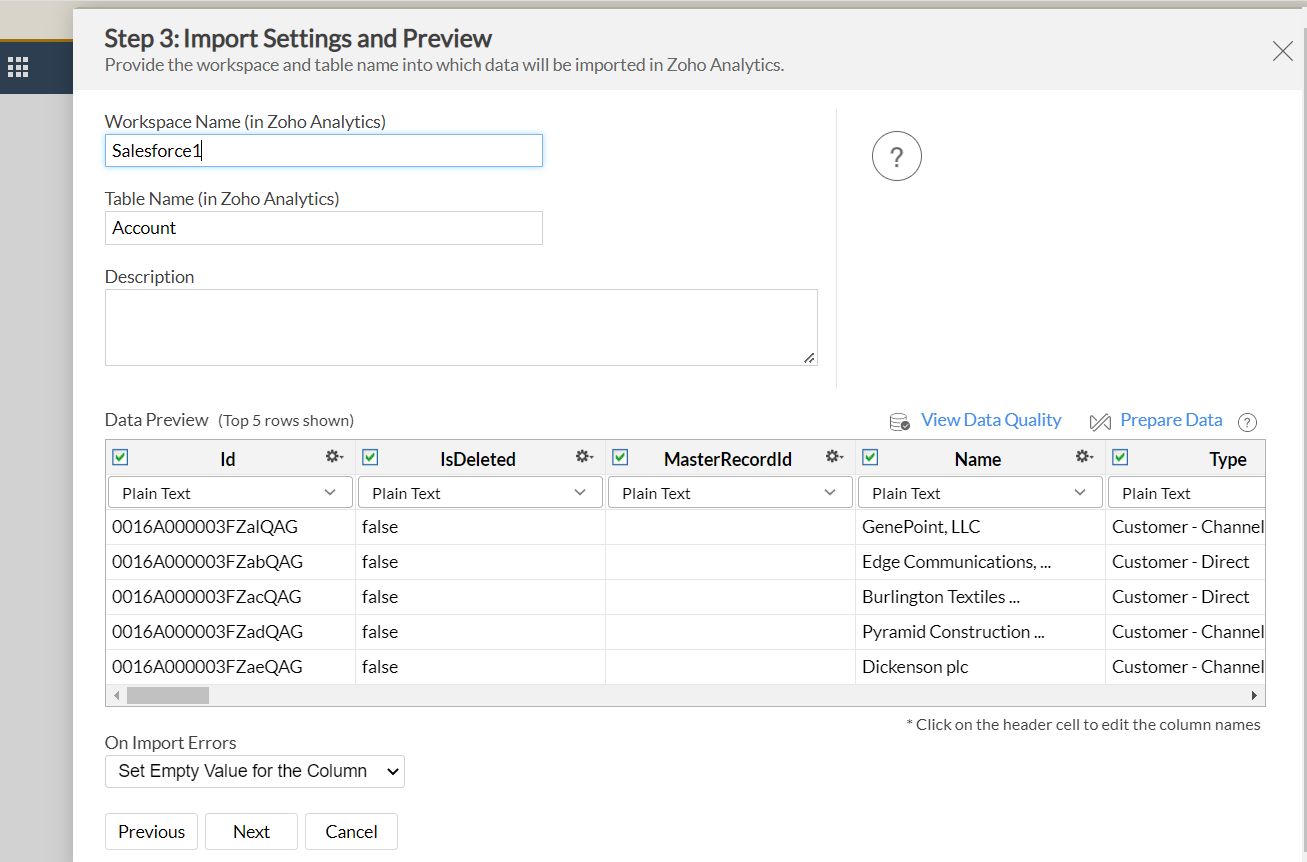


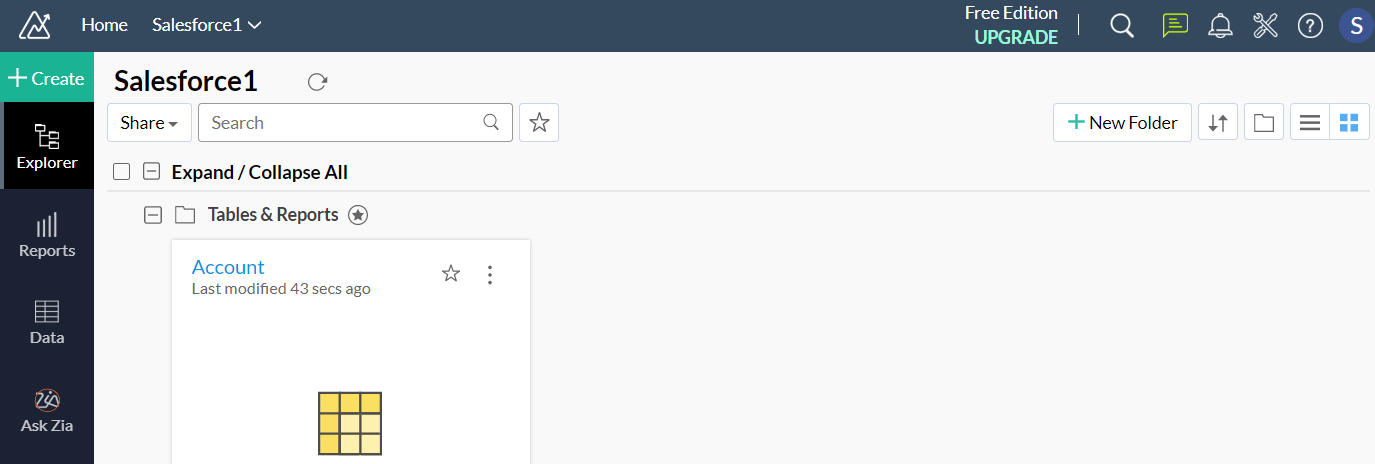


We have successfully imported Active Directory data into Zoho Analytics and created dashboards.
Get CData Connect Cloud
To get live data access to 100+ SaaS, Big Data, and NoSQL sources directly from your cloud applications, try CData Connect Cloud today!






